-
- Market Research
- |
- CBD Near Me
- |
- Giveaways
- |
- Newsletter
- |
- Contact
- |
- Advertise
- |

Clouded by stigma, subjective differences across cases, and steadily shifting diagnostic criteria, depression is one of the most challenging disorders to identify, diagnose, and treat.
The research community is starting to realize that there is no catch-all treatment for a disorder that is now known to result from a cocktail of genetic and/or environmental factors, which is why the most effective treatment involves a combination of therapy and medication.
Speaking of “medication,” the natural hemp constituent cannabidiol (CBD) is showing promise as a depression-fighting agent that may even rival the potency of pharmaceutically developed antidepressants without as many (or as severe) side effects.
Research Supports CBD for Depression
Just like the mechanisms involved with depression, CBD is complex in its many interactions with cellular systems throughout the brain.
Researchers have found that several of these interactions result in antidepressant effects.
A clinical study run by Washington State University psychology and addiction experts found that high-CBD, low-THC medical cannabis elicited a clinically significant reduction (50%) in depression ratings.
That is one of the few clinical trials directly justifying the use of CBD for depression, but more information is needed to elucidate exactly how this correlation is created.
For example, an academic review from University of Sao Paulo and Aarhus University of Denmark faculty cites cannabidiol’s influences on “serotonergic, glutamatergic, and endocannabinoid systems” as well as its purported ability to increase Brain Derived Neurotrophic Factor (BDNF) levels as potential avenues for antidepressant effects.
For the 99 percent of us who aren’t doctorate-level neuropsychiatry or pharmacology experts, this rather esoteric explanation requires a bit of help if it is to be translated into actionable guidelines for everyday CBD use.
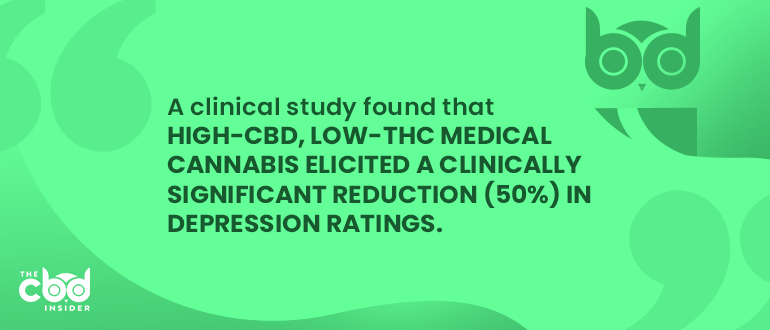
Serotonin
Arguably the most solidly anchored piece of evidence that researchers have regarding the causes of depression is the serotonin connection.
Without enough serotonin—a vitally important chemical messenger that regulates mood, sleep, appetite, and more—the brain is more vulnerable to the physiological processes that cause depression.
Researchers now know that this is not a simple relationship because serotonin is tied to the pathology of depression in several complex ways, and serotonin isn’t the only factor involved with depression, but deficiency is central to the disorder.
A finding authored by University of Montana’s Skaggs School of Pharmacy faculty describes how CBD is an “agonist” at a type of serotonin receptor known as the 5-HT1a receptor.
In pharmacology, an agonist is a substance that binds to a receptor, producing the effect that the receptor is intended for.
This means that cannabidiol may help bolster serotonin production by working with the body’s serotonin receptors.
The Endocannabinoid System
Before the literature explored the cryptic connections between cannabinoids and serotonin receptors, among others (i.e., opioid receptors), it focused on the more straightforward case of the endocannabinoid system.
Our bodies already produce cannabinoids like CBD, meaning we already have receptors intended to work with these compounds and promote various effects throughout the body.
The relationship between the two receptors in this endocannabinoid system, CB1 and CB2, and depression is largely unexplored, but researchers have begun to observe antidepressant effects after CBD administration.
A study authored by China’s Xuzhou Central Hospital examining the potential of CBD oil for depression treatment provides “clues” as to how the relationship between the endocannabinoid system and depression may work, such as:
Single nucleotide polymorphisms (SNP), a very common type of genetic mutation, are associated with severe depression and bipolar disorder when observed in the CB1 and CB2 receptors.
Osteoarthritis patients experiencing depression as a comorbidity consistently demonstrated increased 2-AG (2-arachidonoylglycerol) levels, a cannabinoid that our bodies produce, implicating ECS involvement.
In other words, the scientific community may not be able to describe the inner workings of this relationship between cannabinoids, the endocannabinoid system, and depression, but what they have uncovered suggests that cannabidiol and similar cannabinoids may have antidepressant effects.
Hippocampal Atrophy
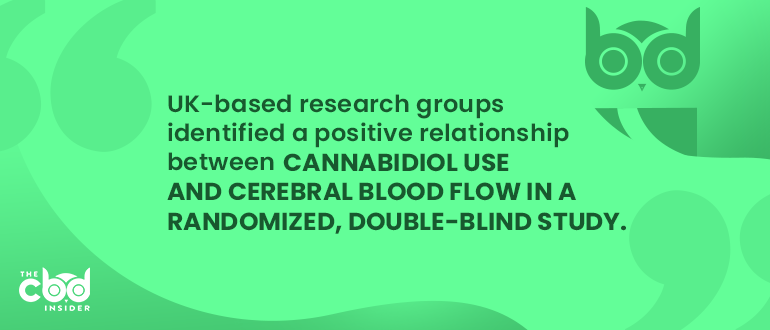
In cases of depression, an area of the brain primarily involved with short-term and long-term memory (the hippocampus) is found to shrink (atrophy).
This discovery helped the scientific community form a biological basis for depression diagnosis and treatment, paving the way for antidepressant medications like SSRIs (selective serotonin reuptake inhibitors).
In addition to its role in creating and recalling memories, the hippocampus also regulates our mood.
Hence, atrophy of this area can cause potentially detrimental effects as it concerns our daily function.
Interestingly, a finding authored by University College London, King’s College London, and other UK-based research groups identified a positive relationship between cannabidiol use and cerebral blood flow in a randomized, double-blind study.
After being given 600 mg of oral CBD, the fifteen study participants were assessed for cerebral blood flow using an MRI technique called arterial spin labeling.
Imaging results reported a mean increase of 15 mL/100g/min, which is the unit used to express how much blood is being perfused into the observed tissues.
The healthy brain receives roughly 50 ml/100g/min, making this increase statistically significant.
With an increased supply of nutrient-rich blood, the hippocampus and other cerebral structures of importance gain an extra defense against atrophy.
Since the hippocampus is involved in dementia and a large range of other disorders, CBD may use this mechanism to treat more than depression.
Replacement or Supplement?
The answer to the question of how and where cannabidiol fits into your supplement and/or medication routine is highly case-specific, but we can at least identify some important benchmarks that can guide you to smarter and safer practices.
CBD and SSRIs
First, depression patients should understand the differences between cannabidiol as a serotonin-boosting supplement and SSRIs, the most commonly used type of antidepressant medication.
While cannabidiol is thought to interact with serotonergic receptors (per above) to enhance production of this important substance, SSRIs are made to prevent excess serotonin from being absorbed back into the neuron producing the chemical, resulting in more “free serotonin” in the brain.
Each of these means may achieve the same end, but in different ways, meaning that depression patients aren’t guaranteed to benefit to the same extent and in the same way when swapping one for the other.
If you’re already taking an SSRI, it’s always wise to consult with your prescribing doctor before using CBD oil for depression.
Even if your doctor is hesitant to discuss the possibility of using CBD for depression because of regulatory and/or legal issues, they can still explain your options as it concerns safely reducing your SSRI dose.
CBD Drug Interactions
If you’re undiagnosed or don’t take medication for your depression, your risk for adverse side effects with a high-quality CBD product is extremely low.
However, if you’re currently taking a drug from any of the following categories, you may be at a greater risk for side effects when taking CBD for depression:
- Antidepressants
- Antihistamines
- Opioids
- Beta blockers
Cannabidiol affects levels of liver enzymes that are used to metabolize many drugs in the above categories.
We cover this important interaction in more detail in our CBD drug interactions article.
For anyone on antidepressant medication or any of the others listed above considering CBD supplementation, determining whether or not CBD will interact with it is extremely important to a safe treatment plan.
In some cases, medications and/or CBD products will explicitly state the potential for interactions on their warning labels.
The answer to the question of supplementation, replacement, or one after the other should be clearer now, but you have to use your circumstances to find it.
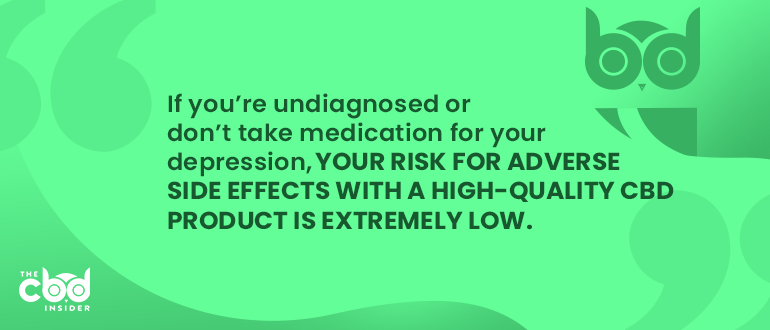
If you take no other medications whatsoever, including antidepressants, CBD is an easy step to take that may prevent the need for prescription antidepressants if you have enough success with it.
People already taking antidepressants or other drugs aren’t automatically excluded from this opportunity, but they need to take extra care to avoid harmful interactions when supplementing and/or taper off of their medications as recommended by their care team when replacing.
Supporting Accuracy and Accountability In Your Personal Trial
In the same way that CBD researchers are clambering to standardize effective doses in a regulationally destitute environment, anyone considering CBD for depression has to use observational reasoning to find the amount and frequency that works for them.
So long as you stay within these somewhat vague, but widely agreed upon dosage parameters of 1-8mg of CBD per pound of body weight per day, it’s highly unlikely that you will experience adverse side effects.
Refining that number further requires consistent tracking and honest self-assessment, which is why keeping a simple log is always helpful.
For example, a 150-pound person could start with a total of 300mg of CBD per day, one 150mg dose in the morning and one in the evening.
In the case of first-time CBD takers, we generally recommend building up to this value by starting with approximately 20-25mg for the first dose and increasing from there.
It’s okay to make changes to frequency and amount, like splitting a daily dose into two smaller doses, but make sure to commit at least 2-3 days to each change for more accurate assessment (unless adverse effects set in).
Once you’ve achieved the optimal dose, you’ll have a much clearer picture of whether or not you can shelve those prescription pills for good.


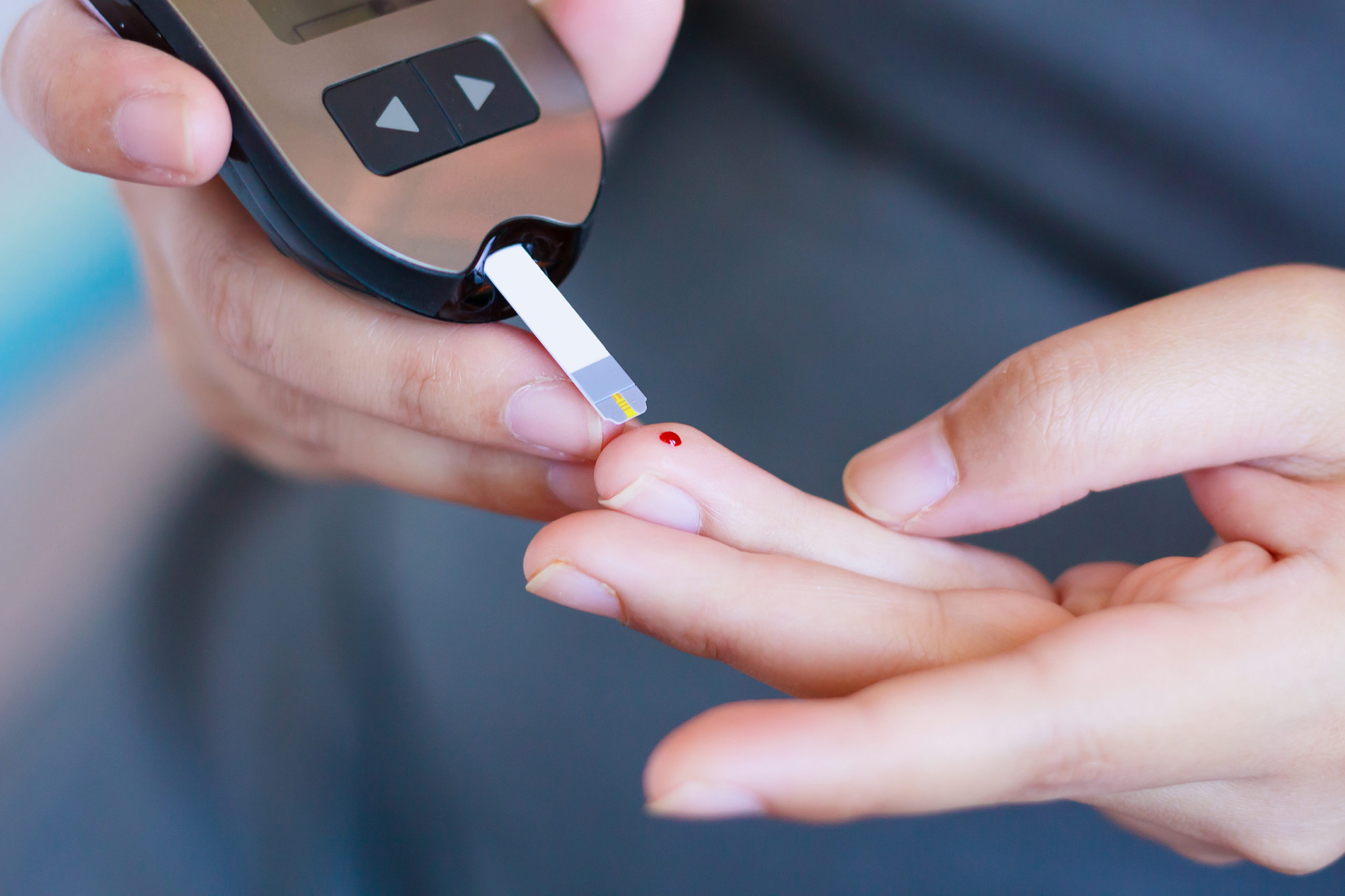

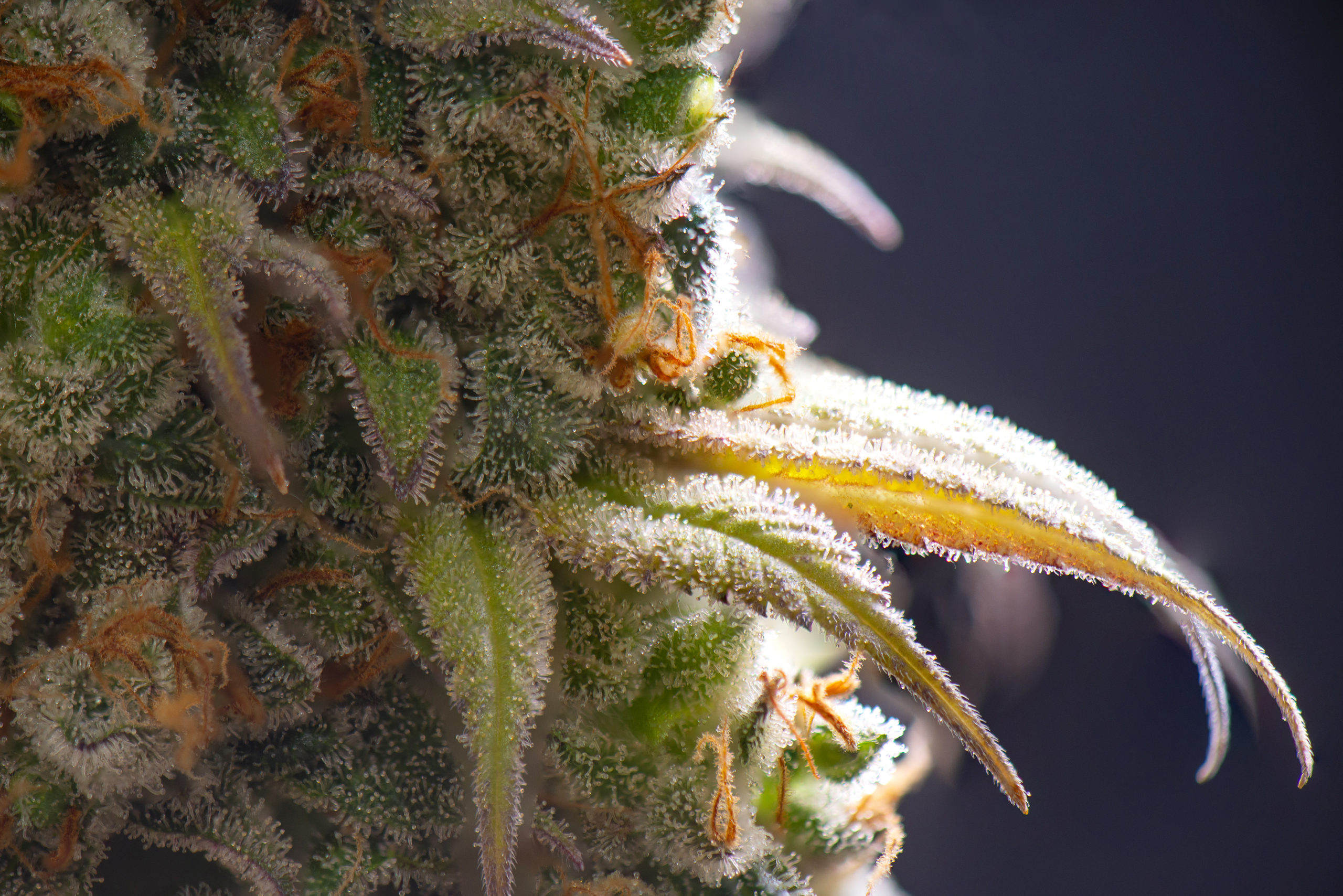

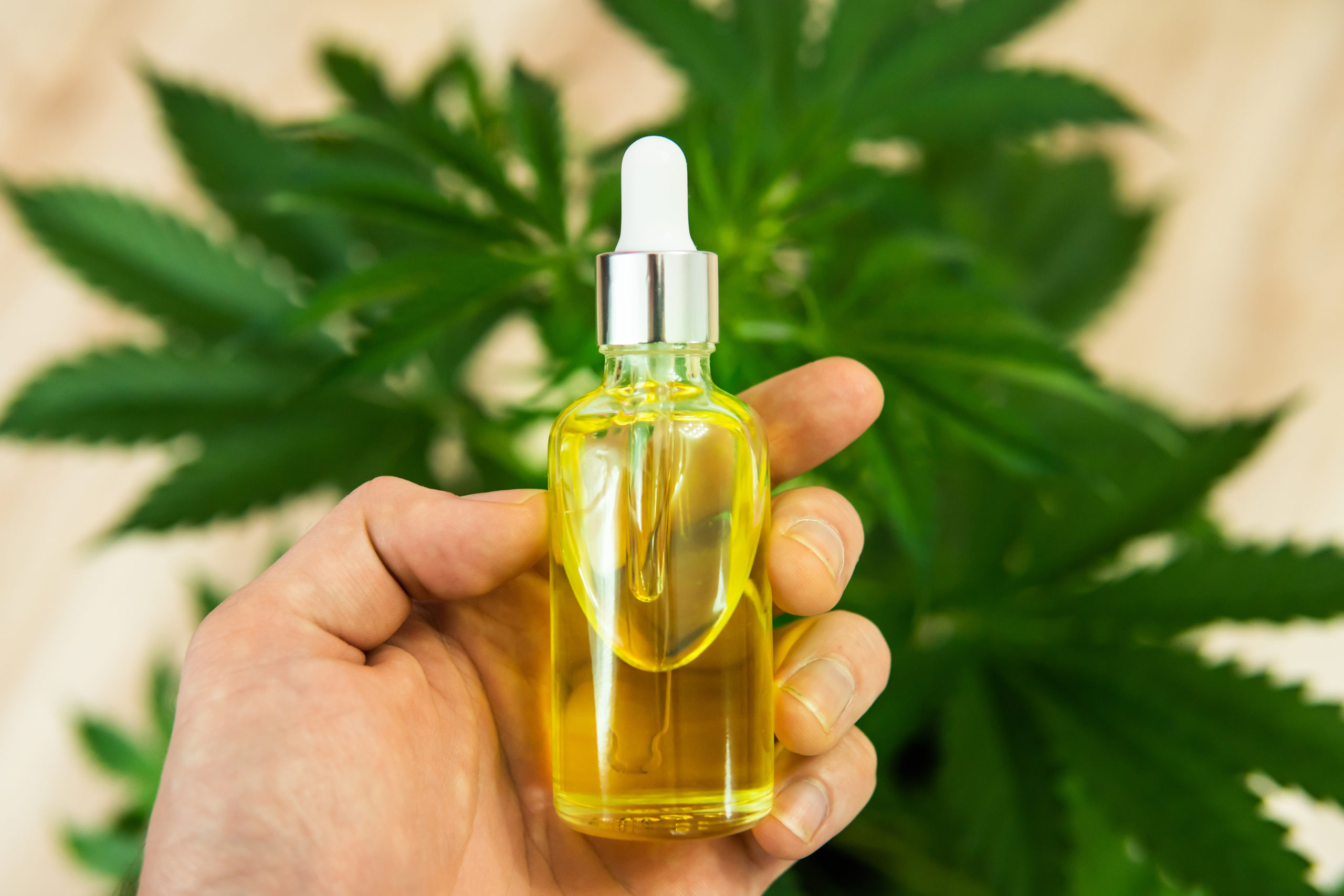

6 Comments
This was informative and comprehensive coverage of all things CBD. I’m glad I found you. Thank you for the education, and I look forward to coming back frequently. This is my kind of blog!
This is a fabulous, comprehensive collection of informative articles that everyone should know about! I’m glad I’ve found your blog. It’s just what I was looking for.
This was informative and comprehensive coverage of all things CBD. I’m glad I found you. Thank you for the education, and I look forward to coming back frequently. This is my kind of blog!
This is a fabulous, comprehensive collection of informative articles that everyone should know about! I’m glad I’ve found your blog. It’s just what I was looking for.
This was informative and comprehensive coverage of all things CBD. I’m glad I found you. Thank you for the education, and I look forward to coming back frequently. This is my kind of blog!
This is a fabulous, comprehensive collection of informative articles that everyone should know about! I’m glad I’ve found your blog. It’s just what I was looking for.